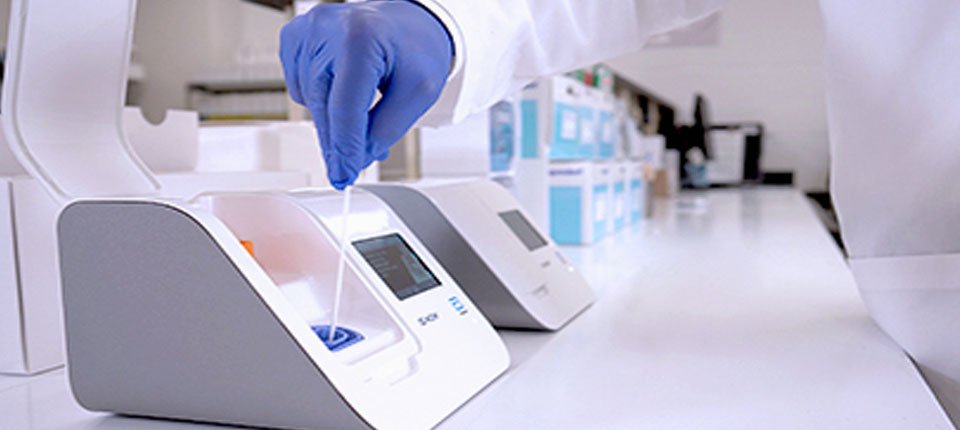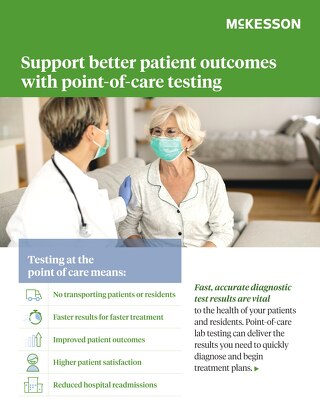Point-of-Care Testing (POCT) refers to clinical laboratory testing conducted at the patient’s location or near the site where care or treatment is provided. POCT produces fast and reliable results that aid in the identification and monitoring of acute infections or chronic diseases.
These tests are performed without the need for permanent dedicated space and provide immediate and actionable results, saving time and improving patient care. It allows for rapid turnaround time, making it especially useful in situations where quick results are crucial.
With point-of-care testing, healthcare providers can bring diagnostic testing closer to the patient, ensuring efficient and effective healthcare delivery.
Definition And Importance Of Point-of-care Testing
|
Point-of-Care Testing (POCT), also known as bedside testing or near-patient testing, refers to medical diagnostic tests that are performed at or near the site of patient care. This type of testing provides rapid results that aid in the identification and monitoring of acute infections or chronic diseases. The tests are designed to be used in situations where a rapid turnaround time is crucial for effective care and treatment. |
Overall, point-of-care testing plays a vital role in delivering timely and effective care to patients, enhancing clinical decision-making, and improving healthcare efficiency. |
Applications And Benefits Of Point-of-care Testing
Point-of-Care Testing, also known as POCT, refers to diagnostic tests that are performed at or near the patient’s location, providing rapid and reliable results. These tests play a crucial role in the identification and monitoring of acute infections or chronic diseases. By conducting POCT, healthcare professionals can obtain quick test results, enabling them to make timely decisions and improve patient outcomes. The convenience of performing these tests at the point of care allows for immediate action, without the need for sending samples to a central laboratory. Point-of-Care Testing has revolutionized the healthcare industry by bringing diagnostics closer to the patients, ensuring faster diagnoses and more efficient treatments. Whether it’s identifying infectious diseases or managing chronic conditions, POCT has become an invaluable tool in delivering effective and personalized care.
How Point-of-care Testing Works
Point-of-Care Testing (POCT) refers to clinical lab tests conducted near the patient and at the location where care is provided, producing rapid and reliable results for identification and monitoring of acute infections or chronic diseases. POCT eliminates the need for laboratory settings and offers convenient and fast diagnostics for improved patient care.
|
Point-Of-Care Testing
How Point-Of-Care Testing Works Overview of the testing procedures involved in Point-Of-Care Testing |

Credit: www.abbott.com
Challenges And Limitations Of Point-of-care Testing
Challenges and limitations of point-of-care testing arise from the need for accurate and reliable results in a fast, convenient manner. However, factors like limited test menu, potential for errors, and operator proficiency can impact its effectiveness. It is crucial to address these challenges to ensure the widespread use and success of point-of-care testing.
Point-of-Care Testing (POCT) refers to medical diagnostic testing that is conducted near or at the site of patient care. It offers rapid and reliable results, aiding in the identification and monitoring of acute infections or chronic diseases. However, there are certain challenges and limitationsPotential drawbacks and limitations of Point-of-Care Testing include:
– Variability in test accuracy: Unlike traditional laboratory testing, POCT devices may have a higher risk of false results due to factors like user error or variations in device performance.
– Limited test menu: Point-of-Care Testing may not offer the same range of tests as traditional laboratory testing, limiting the types of conditions that can be diagnosed or monitored.
– Cost considerations: POCT devices often require higher upfront costs and may have additional expenses associated with disposable testing supplies.
– Regulatory considerations and quality control: Ensuring the accuracy and reliability of POCT results requires strict adherence to regulatory guidelines and quality control measures.
When comparing Point-of-Care Testing with traditional laboratory testing, it is important to weigh the advantages of rapid results and convenience against the potential limitations mentioned above. Regulatory considerations and quality control in POCT are crucial for maintaining the reliability and accuracy of test results.
Future Trends And Innovations In Point-of-care Testing
| Point-Of-Care Testing |
Point-of-care testing (POCT) is a form of medical testing conducted at or near the point of care, providing rapid and reliable results for acute infections or chronic diseases. This type of testing is designed to be used at the patient’s location and does not require a dedicated space. POCT has the potential to greatly impact healthcare delivery by improving patient outcomes and streamlining healthcare processes.
Emerging technologies and advancements in POCT are continuously expanding the capabilities of this testing approach. These advancements include the development of more portable and user-friendly devices, integration with electronic health records, and the incorporation of artificial intelligence and machine learning for data analysis.
The potential impact of POCT on healthcare delivery is significant. Rapid test results enable prompt diagnosis and treatment decision-making, leading to improved patient outcomes. POCT also reduces the need for multiple patient visits and decreases the time between diagnosis and treatment initiation. Additionally, POCT can be utilized in various healthcare settings, including clinics, pharmacies, and remote areas, increasing access to diagnostic services and reducing healthcare disparities.
Conclusion
Point-of-Care Testing (POCT) plays a crucial role in patient care, providing rapid and reliable results at or near the point of care. This diagnostic testing method is convenient, efficient, and assists in the identification and monitoring of acute infections or chronic diseases.
With POCT, healthcare providers can make well-informed decisions and initiate prompt treatment. The accessibility and immediacy of POCT truly bring healthcare to the people, improving patient outcomes and overall quality of care.

